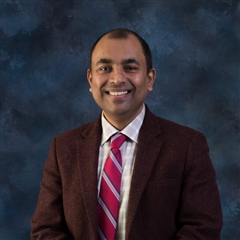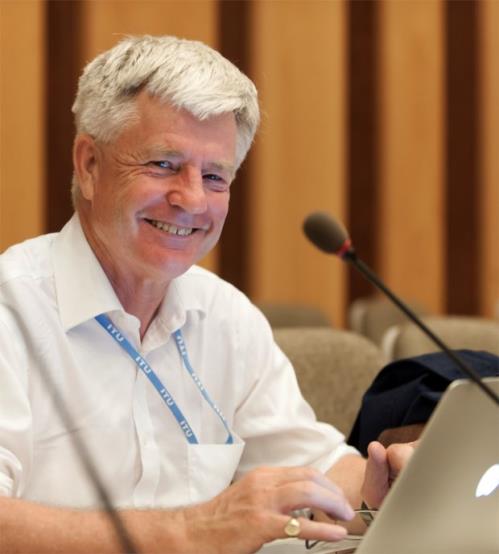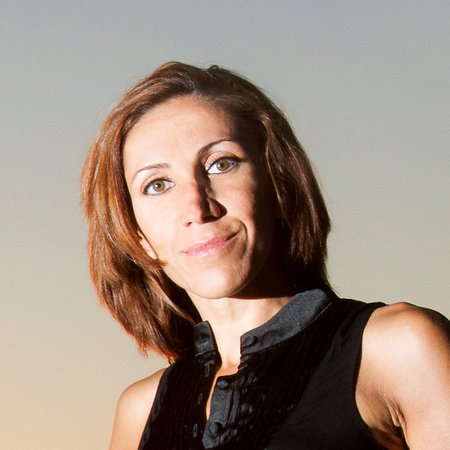What migrants want: digital tech, inequality and migration
Royal Holloway, University of London
Session 329
Digital technologies are both a lifeline and an increasing source of concern for migrants around the world. While these technologies can help address the many inequalities migrants face, they can also exacerbate such inequalities and create new ones. This session will feature an interactive discussion on our digital intervention-research with migrants, migrant organisations and digital tech companies supported by international organisations such as IOM, UNESCO, ILO and GSMA as part of a larger project, Migration for Development and Equality (MIDEQ, http://www.mideq.org), focused on “the complex and multi-dimensional relationships between migration and inequality in the context of the Global South”.
The session will critically examine ‘what migrants want’ in relation to the use of digital technologies as opposed to the numerous apps that are supposedly designed for them. Building on our ongoing research (see https://ict4d.org.uk/technology-inequality-and-migration/) which suggests that migrants rarely use or trust such apps, we will explore how co-design with migrants can help ensure digital interventions that can usefully address migrant-defined inequalities. We will showcase our efforts in Nepal and South Africa undertaken with the direct involvement of migrants, migrant organisations and advocacy groups, and local digital tech companies with the support of relevant international organisations such as GSMA, IOM, ILO and UNESCO.
Our intervention work is based on three key principles:
• There is nothing inherently good about digital tech; our digital intervention should do no harm.
• Digital interventions can have unintended social consequences; we will therefore work ‘with’ migrants, and not ‘for’ or ‘on’ them.
• We will use participatory methods in our work with migrants, migrant organisations, local tech developers and other stakeholders.
This interactive session, which aligns with WSIS Action Lines C3, C4, C5, C7(iii, iv,v), C8 and C10, will highlight our digital interventions from Nepal and South Africa using short-form videos ‘created by migrants for migrants’ as a framing device for the discussion. The session will consist of a series of themed short-form videos followed by a moderated discussion around each theme involving speakers from both academia (Royal Holloway, University of London / UNESCO Chair in ICT4D) and practice. The themes highlight inequalities faced by migrants and how digital tech can meaningfully address them as well as how digital tech can support personal life choices, offer networking opportunities, and become a peer-to-peer learning tool. The safe and wise use of digital tech by migrants and peer-to-peer knowledge sharing will serve as overarching themes for the workshop.
The session is being convened by the MIDEQ team based at Royal Holloway, University of London.

G Hari Harindranath is a Professor of Information Systems in the School of Management at Royal Holloway, University of London and a member of the UNESCO Chair in ICT4D, also based at Royal Holloway. Hari has a background in political economy and holds a doctorate in Information Systems from the London School of Economics. His research centres on the social and organisational implications of digital technologies, including ICT4D. Hari is an Editorial Board Member of the Journal of Information Technology, Associate Editor of Information & Management, and Senior Editor of Information Technology & People. He is co-founder of the Association for Information Systems-affiliate conference, International Conference on Information Resources Management (Conf-IRM). He is currently co-leading the digital tech and inequality work package within the UK government-funded MIDEQ (South-South Migration, Inequality and Development Hub) project (www.mideq.org).

Tim Unwin is Emeritus Professor of Geography and Chairholder of the UNESCO Chair in ICT4D at Royal Holloway, University of London. He was Secretary General of the Commonwealth Telecommunications Organisation (CTO) from 2011-2015, and was Chair of the Commonwealth Scholarship Commission from 2009-2014. In 2018-19 he led the co-ordination of 21 UN agencies on behalf of UNESCO and UNICEF to develop a system-wide strategy on the future of education and learning for the UN’s High Level Committee on Programmes and Chief Executives Board.
His influential edited book Information and Communication Technologies for Development, was published by Cambridge University Press in 2009, and his latest book Reclaiming ICT4D was published by Oxford University Press in 2017. Most of his research and writing currently focuses on the inequalities caused by digital technologies and what needs to be done to ensure that the poorest and most marginalised people can benefit from them.

Dr. Maria Rosa Lorini is a Post-Doctoral Researcher in the School of Management at Royal Holloway, University of London. Maria Rosa has a background in both civil society organisations and academia. Between 2008 and 2012 she directed a HIV/AIDS project for the Cesvi Fondazione Onlus in South Africa, and before that she also worked for the United Nations Operation in Côte d’Ivoire on human rights and the rule of law. Immediately prior to joining Royal Holloway, she was most recently a post-doctoral researcher at the University of Cape Town, with which she maintains close connections. She is working primarily on digital technologies and migration as part of the team contributing to the MIDEQ project.
-
 C3. Access to information and knowledge
C3. Access to information and knowledge
-
 C4. Capacity building
C4. Capacity building
-
 C5. Building confidence and security in use of ICTs
C5. Building confidence and security in use of ICTs
-
 C7. ICT applications: benefits in all aspects of life — E-learning
C7. ICT applications: benefits in all aspects of life — E-learning
-
 C7. ICT applications: benefits in all aspects of life — E-health
C7. ICT applications: benefits in all aspects of life — E-health
-
 C7. ICT applications: benefits in all aspects of life — E-employment
C7. ICT applications: benefits in all aspects of life — E-employment
-
 C8. Cultural diversity and identity, linguistic diversity and local content
C8. Cultural diversity and identity, linguistic diversity and local content
-
 C10. Ethical dimensions of the Information Society
C10. Ethical dimensions of the Information Society
The session aligns with WSIS Action Lines C3, C4, C5, C7v, C8 and C10 in the following ways:
C3: Digital tech can facilitate access to timely and authenticated information but they can also create harm through easy access to misinformation and fake news. Our research has found that migrants often do not use apps specifically designed for them.
C4 & C5: Digital preparedness and digital literacy are key to making beneficial use of the Internet. However many vulnerable migrants lack such capabilities. Migrants need to better understand the importance of safe, secure and wise use of digital tech.
C7 (iii, iv, v): Digital tech has the potential to help connect migrants to new employment opportunities, provide flexible access to learning and health resources but they often lack the capability to use digital tech in such beneficial ways (C4 & C5).
C8: Digital tech provides migrants with ways to remain connected with their culture of origin and broadcast their cultural identity while at the same time bridging to host country culture, norms and language.
C10: Digital tech can be a lifeline for migrants and can be used to address inequalities but they are also capable of being used to do harm. Digital tech can also exacerbate existing inequalities and create new ones. Any digital tech intervention aimed at migrants must involve them at all stages.
-
 Goal 10: Reduce inequality within and among countries
Goal 10: Reduce inequality within and among countries
This session is directly relevant to the SDGs as migration has been recognised as a key contributor to development. Access to and use of digital technologies has wide-ranging consequences for development. Digital technologies can be leveraged to increase access to opportunities and rights for migrants, boosting migration’s developmental benefits at the interface between migrants and host communities. Yet these technologies can have unintended consequences for migrants and, in contexts of unequal access, can increase or create new inequalities.
https://ict4d.org.uk/technology-inequality-and-migration/
https://ict4d.org.uk/technology-inequality-and-migration/nepal/
https://ict4d.org.uk/migrant-videos-from-south-africa/
https://www.mideq.org/en/themes/digital-technologies-and-inequality/
https://pure.royalholloway.ac.uk/en/persons/g-hari-harindranath
https://unwin.wordpress.com/about/
https://www.mideq.org/ar/about-us/our-team/maria-rosa-lorini/